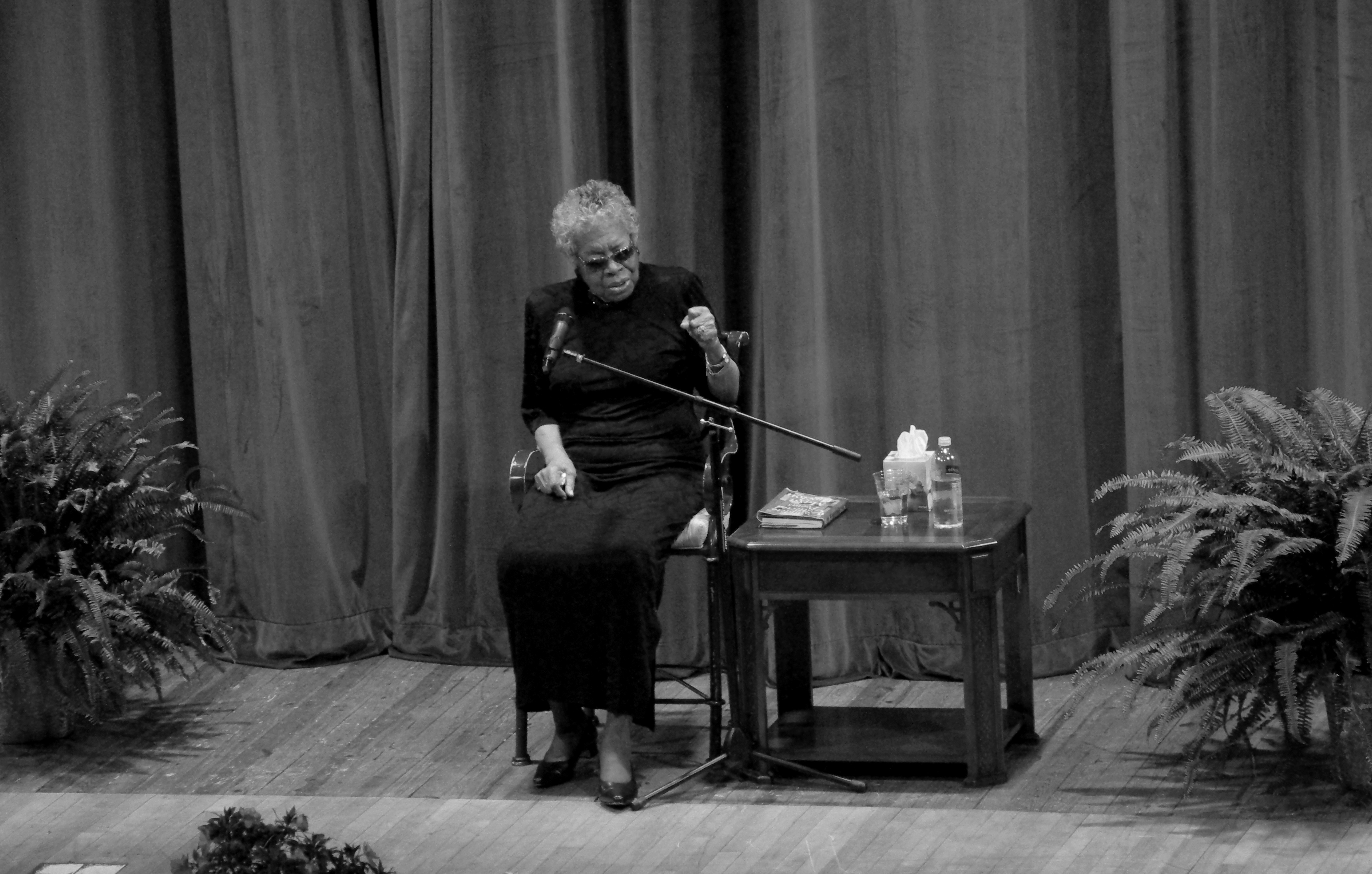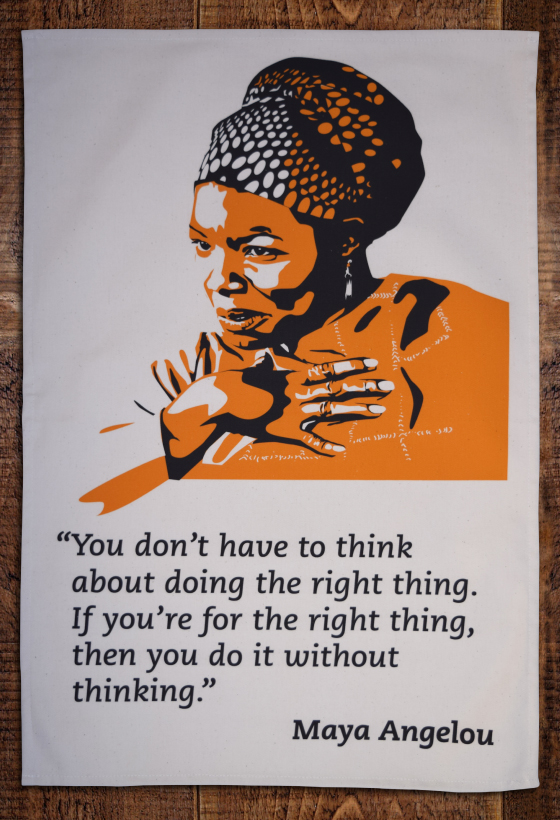Maya Angelou: A Global Citizen
Posted by Pete on May 28th 2019
Angelou is one of the artistic legends of American civil rights activism. Her international legacy is equally important.
During 300 years of the Atlantic Slave Trade, more than 12 million human beings were ripped away from Africa and forced to endure the hellish seaward journey toward a life of slavery and terror in the Americas.
Yet in spite of all these horrors, ties of pan-African unity and friendship have endured throughout the ages.
Pan-Africanism helped fuel the movements for abolition and civil rights, and has played an essential role in defining the modern day struggle for liberation and justice on both sides of the Atlantic.
Few personify this formidable history better than the African-American writer and activist, Maya Angelou (1928-2014), who died four years ago today.
Maya Angelou and the American Civil Rights Movement
Born and raised in the United States, Angelou's radical streak was nurtured from a young age.

At just 16 years old, she became San Francisco's first black streetcar conductor, staging a two week sit-in after authorities initially refused to give her an application.
She later joined Dr. Martin Luther King's Southern Christian Leadership Conference as a coordinator in the early 1960s, befriending and collaborating with the likes of James Baldwin and Malcolm X along the way.
Angelou gave her all to the fight for racial justice and equality in the United States.
But she also saw it as part of a broader, global movement for black emancipation.
Since the days of the slave trade – when British ships carried African slaves to Spanish and American ports, where they would be forced to farm tobacco which was shipped back around the world to be consumed by European aristocrats – the evils of racial oppression have operated far beyond American borders.
In the heat of the struggle for civil rights in the United States, Angelou believed that these broader historic injustices required a global response.
She threw herself into a politics which denounced racial oppression wherever she saw it - putting her on a collision course with US foreign policy.
Solidarity with the ANC - and Castro's Cuba
A passionate supporter of the South African ANC and its bitter struggle against Apartheid, in 1962 Angelou had met and become a close comrade of Nelson Mandela.
Upon his death in 2013, not long before her own, she eulogized Mandela in epic terms:
"No sun outlasts its sunset, but it will rise again and bring the dawn. Yes, Mandela’s day is done, yet we, his inheritors, will open the gates wider for reconciliation, and we will respond generously to the cries of Blacks and Whites, Asians, Hispanics, the poor who live piteously on the floor of our planet."
But while Mandela would later become a near universal symbol for racial justice and reconciliation, Angelou’s vocal support for his ANC was not shared in the American political establishment of the 1960s.
Following the soulless logic of Cold War politics, successive US presidents of both parties backed the Apartheid government - because it was against the Soviet Union.
But if the American powers-that-be disliked Angelou's support for the anti-racist ANC, they liked her friendship with Fidel Castro’s Cuba even less.

She backed Cuba – the bogeyman of US politics – because, unlike the United States, Fidel Castro gave his full support to the fight against white supremacism in southern Africa, even sending a large Cuban military force in 1975 to fight off a South African intervention in Angola.
When confronted by US journalists with her support for Castro's Cuba, Maya often responded that it “wasn’t no Communist country that put my grandpapa in slavery.”
The Caged Bird Sings All Around the World
As expansive and unrestrained as the prose for which she is known and loved, Maya Angelou’s politics were equally unlimited, held back neither by national borders nor Cold War scaremongering.
In the tradition of bravery and fearlessness built up by the likes of Sojourner Truth, Paul Robeson, Malcolm X, and MLK, Angelou raised her voice against racial oppression wherever she found it - and at whatever the cost.
